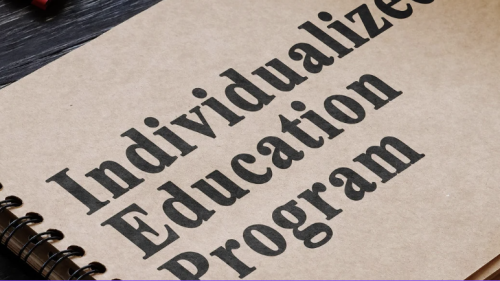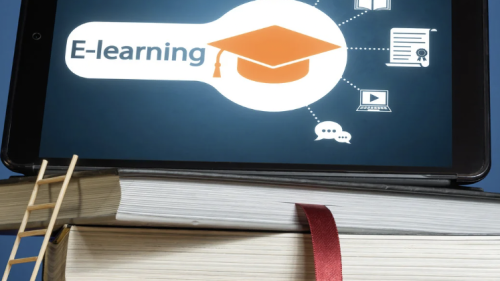Conflict is an inevitable part of life, and for educators, it is a frequent occurrence in the classroom. However, instead of viewing conflict as a disruption, teachers can reframe it as an opportunity for learning and growth. With the right strategies and training, educators can guide students in resolving disputes constructively, helping them develop essential life skills in communication, negotiation, and emotional intelligence.
Enhancing Conflict Resolution Through Professional Development
One effective way to enhance conflict resolution skills is by participating in Kent State’s structured professional development, such as the Managing and Negotiating Conflict in Your Personal and Professional Life workshop. This fully online course is designed for educators, counselors, and social workers who want to strengthen their ability to use communication and listening skills to manage conflict productively. The Teaching Conflict Management in the Classroom K-12 workshop also provides educators with tools to build an individualized conflict-management curriculum for students, helping them incorporate conflict-resolution strategies into various subjects while addressing social and emotional learning mandates.
Understanding Conflict as a Learning Tool
Many educators focus on preventing conflict altogether, but disagreements and misunderstandings are natural and can serve as teachable moments. By allowing students to engage in constructive dialogue and problem-solving, teachers can help them:
- Develop emotional regulation and self-awareness.
- Improve their ability to listen actively and empathetically.
- Learn negotiation and compromise skills.
- Understand the role of power dynamics and cultural differences in conflicts.
Strategies for Turning Conflict into a Learning Experience
1. Teach Students About Conflict Styles
Emphasize the importance of understanding different conflict styles. Some individuals avoid conflict, while others confront it head-on. Educators can help students identify their personal conflict styles and recognize how different approaches affect resolutions.
2. Foster Active Listening and Communication Skills
Active listening is a crucial component of conflict resolution. Educators can model and teach students techniques such as:
- Paraphrasing what others have said to ensure understanding.
- Using “I” statements instead of accusatory language.
- Recognizing nonverbal cues that indicate emotions and intentions.
3. Implement Restorative Practices
Restorative justice techniques, such as conflict resolution circles and peer mediation, empower students to resolve disputes in a structured, respectful manner. These practices help students take responsibility for their actions while promoting understanding and healing rather than punishment.
4. Address Power and Cultural Differences
As highlighted in the Managing and Negotiating Conflict workshop, power dynamics and cultural backgrounds can influence how individuals approach conflict. Educators should create a learning environment where different perspectives are valued, helping students understand how cultural differences shape communication and conflict-resolution approaches.
5. Develop a Classroom Conflict-Management Curriculum
Through the Teaching Conflict Management in the Classroom K-12 workshop, educators can create personalized conflict-management lesson plans that align with their curriculum. By integrating topics such as dealing with anger, saving face, and being assertive rather than aggressive, teachers can equip students with essential skills to navigate conflicts effectively.
6. Practice Conflict Scenarios and Role-Playing
Experiential learning is one of the most effective ways to teach conflict resolution. Educators can create scenarios where students practice negotiating disputes, handling aggressive behavior, and de-escalating tense situations. By experimenting with different techniques in a safe environment, students build confidence in their ability to manage real-life conflicts.
Empowering Students Through Conflict Resolution
Educators can transform conflicts from obstacles into valuable learning experiences by integrating conflict resolution training into classroom practices. Ultimately, when educators view conflict as an opportunity rather than a problem, they empower students with skills that will benefit them far beyond the classroom.
Ready to learn more? Register here!
The Office of Professional Development & Outreach at Kent State University
The future of education is built every day by educators like you.
At the Office of Professional Development and Outreach, we create high-quality professional development opportunities to help the educational community increase the knowledge and skills needed to meet the challenges of today’s students.
Our online workshops present an incredible opportunity for learners to continually enhance their skills, particularly for educators to earn credits while adapting to the evolving landscape of education. Investing in your professional development improves your teaching practice and enriches your student’s educational experience.
Learn more at http://www.kent.edu/creditworkshops.
100% Online Degrees through the College of Education, Health and Human Services
Kent State University’s College of Education, Health and Human Services (EHHS) offers a portfolio of 100% online graduate degrees. With the working professional in mind, the college is dedicated to providing quality education on an online platform.
Degrees include:
- Online Master of Education in Curriculum & Instruction
- Online Master of Education in Educational Psychology
- Online Master of Education in Educational Technology
- Online Master of Education in Research, Measurement & Statistics
- Online Master of Education in Special Education
- Online Master of Education in Cultural Foundations
- Online Doctor of Education in Interprofessional Leadership
Learn more about all of the 100% online EHHS degrees.
Kent State University Online Degrees
Kent State University pioneered online and distance education, offering its first online program over 20 years ago. Kent State now offers more than 90 online degree and online certificate programs, unmatched by most peer universities, with new online programs and online degrees continually added.
Earn your degree anytime, anywhere, with Kent State University’s online graduate degrees, online undergraduate degrees, and online certificate programs. Kent State Online brings together online programs and assistance for students, faculty, the community, and global audiences.
For more information on Kent State’s Online Degrees, visit https://onlinedegrees.kent.edu.









